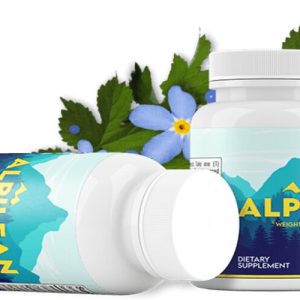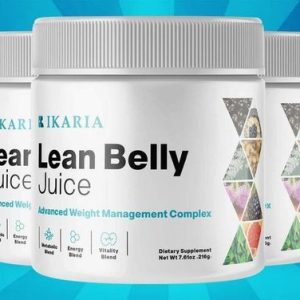Both Linode and DigitalOcean are some of the best platforms for app designers, web developers, and everyone in between, as they both offers dedicated resources directly for their business. Both providers are among the best in their field, and at first glance, they may look similar, but after going through the nitty gritty, their security features, performance, and support are different. So, a Linode vs DigitalOcean comparison seems necessary.
Linode offers a high-performance SSD Linux-based server and also includes Longview, analytics, and a variety of cloud-computing services. Additionally, Linode is one of the fastest-growing cloud hosting providers and has excellent API along with a smart control panel.
DigitalOcean, on the other hand, offers Virtual Private Server (VPS) that are primarily used for hosting websites and applications with high-security functions. DigitalOcean offers a variety of CPU-optimized VPS that ranges from machine learning and video encoding to working with massive NoSQL database.
There are also various other differences that lie between them and to make sure you are using the right provider, we will provide you with a detailed Linode vs DigitalOcean comparison.
To start this Linode vs DigitalOcean comparison, let’s first take a look at both their pros and cons.
Linode Pros and Cons
| PROS | CONS |
|
|
DigitalOcean Pros and Cons
| PROS | CONS |
|
|
Linode vs DigitalOcean: Plans and Pricing
Both Linode and DigitalOcean offer cloud-computing services at a bit above industry-level prices. Cloud computing services include various cloud resources such as storage, processing power, and more. In addition to cloud-computing services, both Linode and DigitalOcean allow to scale and customize Cloud VPS, Kubernetes environment, and more.
Both DigitalOcean and Linode offer an hourly subscription to all of their plans, and the services are billed on a monthly basis. Users also have full control over customization and can also see what they are exactly billed for.
To a point, the pricing of both platforms is the same, but their features vary. For a better understanding, let’s start by taking a look at Linode’s pricing.
Linode Plans and Pricing
| RAM | CPU | Price |
| 1 GB | 1 Core | $5/Month |
| 2 GB | 1 Core | $10/Month |
| 4 GB | 2 Cores | $20/Month |
| 8 GB | 4 Cores | $40/Month |
| 16 GB | 6 Cores | $80/Month |
| 32 GB | 8 Cores | $160/Month |
| 64 GB | 16 Cores | $320/Month |
| 96 GB | 20 Cores | $480/Month |
Linode offers various plans such as Dedicated CPU, Shared CPU, GPU, and various other plans for database, additional storage, and other services. The servers of Linode lie under the standard plan and go all the way up to 192GB with 32 cores and 3840GB SSD.
DigitalOcean Plans and Pricing
| RAM | CPU | Price |
| 1 GB | 1v CPU | $5/Month |
| 2 GB | 1v CPU | $10.00/Month |
| 4 GB | 2v CPUs | $20/Month |
| 8 GB | 4v CPUs | $40/Month |
| 16 GB | 6v CPUs | $80/Month |
| 32 GB | 8v CPUs | $160/Month |
| 64 GB | 16v CPUs | $320/Month |
| 96 GB | 20v CPUs | $480/Month |
To a point, the pricing of DreamHost is similar to Linode, but their functions and offerings differ. DigitalOcean has multiple VPS configurations, and each comes with its own plans. The platform also contains CPU-optimized droplets and allows for easy customization. Moreover, additional space, databases, functions, and more can be purchased in DigitalOcean.
The pricing of both Linode and DigitalOcean is competitive and is similar to a point. However, when comparing their offerings, it much clear that Linode offers a better range of features and functions than DigitalOcean.
Moreover, Linode also contains a money-back guarantee of 7 days. DigitalOcean, on the other hand, has no money-back guarantee. All in all, thanks to Linode’s money-back guarantee, it is the safer choice to go with, but otherwise, the plans and pricing of both providers are hardly any different.
DigitalOcean vs Linode: Feature
Both DigitalOcean and Linode offer infrastructure rather than a web hosting server. However, take note that neither of the providers offers free features with their Cloud VPS plans. The number of specialized servers is also shown on the advanced plans.
Although their services and features are some of the best in the market, only one can top the other. To start with, let’s first take a look at the features of DigitalOcean.
DigitalOcean Features
The starter plan of DigitalOcean comes with 1GB RAM, 1 core processor, 25GB SSD, and 1TB of transfer. Take note that although the starter plan of DigitalOcean may seem cheap, that’s because additional memory, space, and processing power are not included; they can be purchased separately.
Features for managed Kubernetes and app platforms are included in DigitalOcean. Moreover, DigitalOcean also includes CDN for simple object storage service. Although this feature is one of the best for static assets, the optional service is not available for free and requires an additional purchase.
Although an array of features are available in DreamHost, they are not spread like wildfire. Features for Ghost, Docker, LAMP, Ruby on Rails, WordPress, and more are all presented and accounted for in DreamHost. Moreover, none of the DreamHost features lie shells within shells; they are out in the open and also have room for customization.
The Features Offered by DigitalOcean Are:
1. NGNIXConfig: It is open-source software that is designed for media streaming, reverses proxying, web serving, caching, load balancing, and more. It is also used to configure NGNIX servers.
2. DNS Lookups: The tool allows for instant results for domain searches.
3. Bandwidth Calculator: DigitalOcean allows users to calculate the VPS bandwidth with the bandwidth calculator.
4. Glob Tool: The tool can be used to run patterns to test with a set of testing strings.
5. JavaScript Minify Tool: DigitalOcean allows users to use JavaScript tools to reduce source codes and make a much more interactive web interface.
6. SPF Explainer: The tool can be used to run searches to evaluate IPs for sending emails.
7. Open API: The tool is integrated with existing workflow and allows for seamless tooling that can be used to develop, update, and manage a cluster.
8. Full Kubernetes API: DigitalOcean allows users to create a custom control panel with the Kubernetes cluster in order to create an end-point for Kubectl CLI.
Linode Features
Although the offerings of Linode are higher than DreamHost, the product line of Linode is not as “fully featured.” The starting plan of Linode offers 1GB RAM, 1 Core CPU, 1TB transfer, and 25GB SSD disk space. The starter plan of both Linode and DigitalOcean is much similar to one another, but the difference can be seen in their interface.
Linode is packed to the core with features, and none of them lies shells within shells. Generous RAM, storage, bandwidth, and transfer data are included with all of Linode’s plans. Moreover, additional features can be purchased separately to further increase performance.
Linode makes the user feels like a kid in a candy store with its features. However, in order to use the advanced Linode features, an additional purchase will be required. The Linode data centers are spread all across the globe and allow.
The Features Included With Linode Plans Are:
1. Terraform Provider: It is a tool that follows the “infrastructure-as-code” method and offers various management features to users for different Liode resources.
2. Rancher: The tool allows users to centralize Kurbenetes management to work with multiple clusters with different clouds.
3. Pulumi: The tool allows users to manage Linode’s resources with a general programming language such as GO, Python, Javascript, and more.
4. Packer Builder Plugin: Linode includes a premium plugin that easily creates private Linode images.
5. Storage Interface Driver: The feature is integrated with Kubernetes and allows it to contain orchestrators with Linode Block storage.
6. Terraform Kubernetes Installer: The tool takes advantage of Linode’s regional private network and comes with Kubernetes enhancement, and also allows to easily create clusters.
7. Kubernetes Add-On: The tool uses automatic Linode NodeBalancer for provisioning services and status reporting. The add-on can also be used to reschedule resources.
8. The Docker Volume Driver: The tool allows users to Docker commands for provisioning, attaching, and detaching volumes to containers. However, take note that the volumes that are not being used will be eliminated automatically.
The features and functions of both platforms are some of the best in the market and can easily set a staging environment for a website. However, in comparison, the features of DigitalOcean are better, as they are much easier to use and also have a wider room for customization than Linode’s features.
Linode vs DigitalOcean: Customer Support

Both Linode and DigitalOcean offer 24/7 live chat customer support from their most basic plan. Furthermore, the customer support of both platforms increases in the higher plans. In the higher plans, Linode offers phone call support that can be reached throughout the clock.
As for DigitalOcean, it does not offer phone call support; instead, it includes email support. Moreover, unlike other platforms, DigitalOcean does not respond to emails with a bot; it uses human customer support.
The customer support of both platforms is responsive and reliable and can be used to solve any queries regarding their services. Moreover, various helpful resources, such as FAQs, articles, etc., are available on both platforms.
In comparison, although DigitalOcean does offer phone call support, its live chat and email support are more than capable of surpassing the support of Linode.
Linode or DigitalOcean
Both Linode and DigitalOcean shine brightly in the market as they allow to scale applications with cloud-based servers. Although both platforms offer excellent scaling options, their performance and functionality differ; for instance, Linode allows users to select the desired RAM size that can be used to migrate the server according to new the new configuration.
Although Linode has an extensive range of features than DigitalOcean, the functionalities and performance of DigitalOcean are better. Moreover, the pricing of DigitalOcean is also similar to the point of Linode’s.
All in all, DigitalOcean is the better choice to go with; however, take note that DigitalOcean does not have a money-back guarantee, meaning if the platform does not meet your expectations or seems hard to use, you will not get a refund.
To Conclude
Both Linode and DigitalOcean are cloud infrastructure providers and have similar features and pricing to a point. Both providers also offer additional services such as storage, Kubernetes, and more. Although their pricing and features share some similarities, their performance and functionality are different.
All in all, in the Linode vs DigitalOcean comparison, DigitalOcean is the winner as it is easier to use, has more reliable functions, and also has better customer support. Although DigitalOcean does not offer a money-back guarantee like Linode, it includes various helpful resources that can be used as a guide to quickly and easily solve any queries regarding the services.






